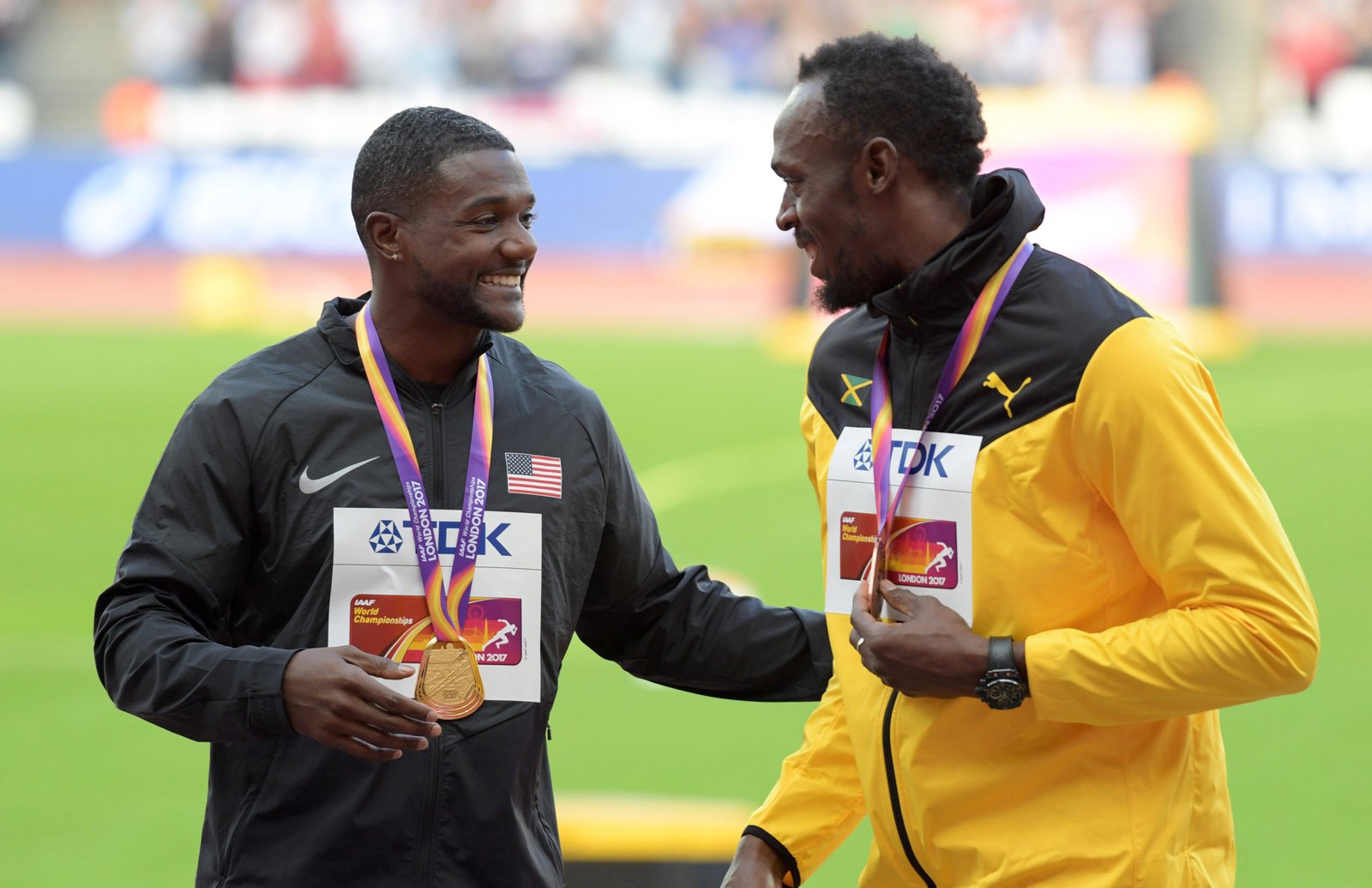Once hailed as the fastest man in the world, American sprinter saw his world crumble after a doping scandal derailed his soaring career.
But in a twist of fate, it was the rise of Jamaican icon Usain Bolt that helped pull him out of the shadows and reignite his passion for track and field.
In the early 2000s He won Olympic gold in the 100 meters at the Athens 2004 Games and followed it up with a stunning double—victories in the 100m and 200m—at the Beloved by fans and feared by rivals, Gatlin seemed destined for long-term greatness.
Harambee Stars coach Benni McCarthy has been in the news lately, being linked to the Orlando Pirates job as a potential Jose Riveiro successor.
But just a year later, the narrative flipped. Gatlin tested positive for testosterone or its precursor, marking his second doping violation after a previous case during his college years.
In 2006, the once-revered sprinter was hit with a four-year ban and suddenly became one of the sport’s most polarizing figures.
“Track was my life,” Gatlin said on a recent episode of the podcast. “When that got taken away, I had to figure out who I was.”
Depressed and disillusioned, Gatlin searched for new meaning. He tried modeling, flirted with a possible NFL career—earning a tryout with the Tampa Bay Buccaneers in 2007—but nothing truly filled the void.
Shericka Jackson will begin her 200m comeback on Saturday, aiming for redemption while facing a fierce American trio out to test her.
“You dive 100% into your craft as an athlete,” he reflected. “I even played a little football… but eventually, I realized where my heart truly was. I love what I love, and I love track and field.”
The ban, while devastating, became a period of unexpected growth. «The time away was both a gift and a curse,» Gatlin said. “It gave me a whole new perspective. I didn’t take any race for granted anymore.”
When he finally returned, he was overweight and out of rhythm. “They used to call me ‘Fatlin,’” he admitted. “It was tough… but I embraced it.”
To bridge the performance gap with the world’s best, Gatlin trained like a man possessed.
“I had to trick my mind. I told myself these guys were taking food off my plate, and I needed to fight. My peers were already running 9.7s and 9.6s when I came back. I had to ask, ‘What do I do now?’ So I trained like Rocky.”
Hellen Obiri fell short of a historic third Boston Marathon win but proved her dominance with a resilient podium finish.
But perhaps the most pivotal moment came in 2008, when a then-unknown Jamaican named electrified the world with
“I was at a bar with some friends when Bolt crossed the finish line. I looked up and said, ‘I want to race that guy.’ It wasn’t even about beating him—it was about earning the right to stand next to him on the starting line,” Gatlin said.
For Gatlin, that desire to compete with the best gave his comeback a higher purpose. “If you’re a real competitor, you want to test yourself against the best,” he emphasized. “That’s what kept me going. That’s what made me train harder. It was about self-accountability. If you want to be the best, you have to show your best.”
Usain Bolt’s brilliance might have widened the gap between clean sprinting and scandal-ridden pasts, but for Gatlin, Bolt was the spark he needed to believe again.




